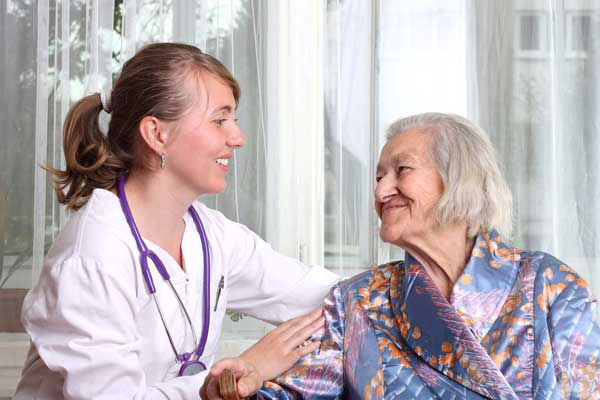5.0 6 reviews
-
Joan Kolb ★★★★★
St. Bernardine Hospice Care was just amazing and so comforting to myself and my family. Everything was smooth, from setting up … More my husband's hospital equipment in our home to bringing the supplies I needed very quickly. Every person I had contact with was professional, kind and knowledgeable. They explained things very well, sometimes more than once! They answered my calls quickly and were able to advise, comfort and guide me. Caring for my husband at home was difficult, but they made it a heartwarming memory for my family. I loved my team--Mo, Jennie, April and any others I might have forgotten the name of. It was a blessing to have them ready to help me every step of the way. -
Carole Marron ★★★★★
My family and I absolutely recommend St. Bernardine Hospice Care! They were so wonderful, caring, professional, polite and excellent … More with all the healthcare and supplies my father needed! Mohammed was my dad's nurse. He treated my father with such wonderful professionalism and compassionate excellent care! I am truly grateful for their service and kindness for helping my father get great health care and make him feel very comfortable in his last months of life. Thank you Mohammed and St. Bernardine💖💖🙏 -
Chris Foo ★★★★★
My grandfather received the best care we could have asked for at the end of his life. The entire staff - doctors, nurses, assistants … More - were incredibly caring for him and made him feel comfortable. They even spoke Farsi which made it much easier to speak with my grandfather who was originally from Iran.
They were here for us during an extremely difficult time and we are very appreciative for it. I would highly recommend St. Bernadine Hospice. Their quality and professionalism are everything you would want in a healthcare team. -
Gila Robben ★★★★★
Putting my father in hospice care was unknown to me. Mohammad made the transition seamless and easy for us. He was kind and patient … More while explaining every detail to us. He took wonderful care of my father. Thank you!! -
M AH ★★★★★
By writing this review I am strongly recommending ST Bernardine hospice to all families .
They are so wonderful , caring professional … More , polite and excellent with all the healthcare and supplies you need.
They treated my brother who was suffering from cancer with such wonderful manner , professionalism and compassionate excellent care.
I am truly grateful for their service and kindness for helping my brother.
Special thanks to Mr Massoud Shojae -
 Madison Molazem
★★★★★
Madison Molazem
★★★★★
The Highest Standard of Hospice Care

Hospice Care

Volunteering

Palliative Care
St Bernardine Hospice Irvine
Why St. Bernardine’s Is Different
We know that families have options when searching for end-of-life care, but we believe that our unique position on patient care places us at the forefront of this industry. Our care values include communication, teamwork, and professionalism. While these may sound simple, they provide the foundation for how we treat our patients and their family members. We ensure that patients and families understand exactly what is happening throughout every step in the process, and we work with these individuals to ensure that we carry out mutual goals. Each of our staff members is committed to working with each other as an interdisciplinary unit, allowing us to provide a variety of care types with a minimum of fuss.
St. Bernardine’s Patient and Family Member Pledge
We understand that every patient has unique needs, goals, and desires physically, mentally and spiritually, and we know that these needs are fluid. Our pledge to every patient and family member is that we will provide high quality, compassionate care at all times.
FAQ
Registered Nurses and Licensed Vocational Nurses
The RN is in charge of the team and provides assessments and care plans. After the initial admissions assessment, the LVN usually provides regular assessments and communicates concerns to the medical doctor.
Medical Social Worker
The MSW helps with numerous patient and family concerns, including providing referrals, gathering community support and getting necessary members of the team involved in the care plan. The MSW can also discuss financial and insurance issues.
Home Health Aide
A home health aide provides the majority of the hands-on daily care of the patient, including dressing, bathing, brushing teeth and changing bedding.
Chaplain
The chaplain provides spiritual support for the patient and his or her family members. The chaplain will visit the patient, listen to emotional and spiritual needs and provide family support after the patient’s death. He or she will work intricately with the bereavement team and can answer questions about funerals.
Volunteers
Volunteers are an integral part of our team and are required by Medicare to work with us. They provide companionship to patients, help family members with everyday tasks and answer questions on the telephone.
Medical Director
The medical director oversees every patient’s care, ensuring that care plans are in place, consulting with doctors, encouraging proper teamwork and providing medical management to the hospice program.
